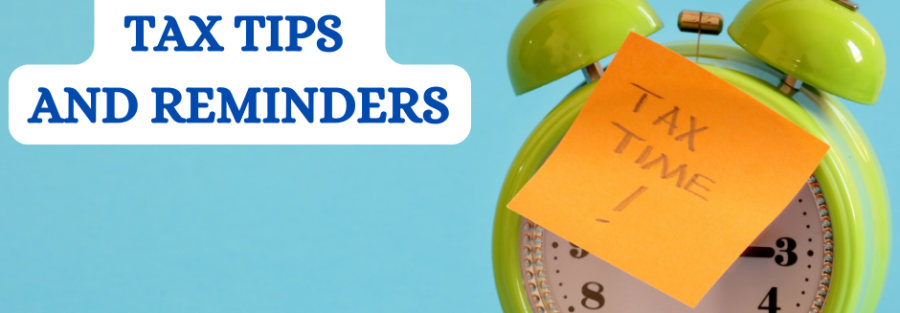As the income tax year comes to an end, it’s important to start thinking about taxes and seek tax advice.
Whether you’re a business owner or an individual taxpayer, there are several things you can do before the end of the year to help reduce your tax burden.
It’s a timely reminder to spend a little time reviewing your financial records and reflect on the past year.
Before we bid farewell to the 2023 tax year, here are a few tips to maximise your tax deductions and minimise your tax bill.
The list is a summary only and isn’t intended to be exhaustive or complete. It focuses on taxpayers who seek tax advice for the tax year ending 31 March 2023 year end. It may not be suitable for taxpayers who seek tax advice for other balance dates. I hope you’ll find a couple of tips and strategies to add some extra savings to your tax bill.
Please seek tax advice and contact us if you’d like to discuss your specific needs and circumstances.
TRUSTS AND TRUST DISTRIBUTIONS
If a trust has been granted extension of time to file its income tax return, the relevant date of distribution date will be the earlier of:
- When the return is filed; or
- When the return is due to be submitted to IRD.
Income may be added to the relevant beneficiaries’ tax returns, rather than the trustees’ for distributions made in the current income tax year, by these dates.
Some trust deeds contain clauses requiring distributions to be paid within six months of the trust’s balance sheet date. These clauses supersede the above.
Trusts must now disclose more information along with their taxable income. They must now prepare profit or loss statements and balance sheets. Additionally, the Trust’s tax return must incorporate disclosures of all trustees settlements.
>> RELATED ARTICLE: Trusts Act 2019 – Trustee Responsibilities
Information about anyone who can appoint and dismiss trustee, and further details around distributions to beneficiaries must also be provided. Seek tax advice if you’re unsure.
FIXED ASSETS
Business assets you no longer use.
Do you have any assets you no longer use or don’t plan to use later? Or would the cost to dispose them exceed its disposal value?
If so, you may be able to write off their book value.

We recommend you review your fixed asset register and:
- Remove assets you have sold, stolen, scrapped, or destroyed and calculate any losses on disposal.
- Determine if you’re using correct depreciation rates.
- Depreciate new assets for the full month of purchase, not just from the day of purchase.
Low value assets (LVAs)
You may be able to completely write off certain LVAs if they cost below the following thresholds:
- Purchased before 17 March 2020: $500
- Purchased on or after 17 March 2020 and before 17 March 2021: $5,000
- Purchased on or after 17 March 2021: $1,000
If you’re GST-registered, the thresholds are exclusive of GST.
However, you will not be entitled to an immediate write-off:
- When the LVA becomes part of any other property that is depreciable property or is an improvement/upgrade of that property.
- If more than one LVA is purchased at the same time and from the same vendor, and if those assets have the same depreciation rate and their total cost exceeds the relevant threshold.
Buying and selling assets
You can claim a full month’s depreciation for any part month that an asset is owned and used. Think about buying replacement assets before 31 March to obtain a full month’s depreciation.
If you estimate you’ll make a loss when selling an asset, consider selling it before 31 March 2023. This will enable you to claim an additional taxable deduction.
If you anticipate you’ll gain when you sell, consider postponing selling it until after 31 March 2023. You’ll then be able to defer when you to need to declare the taxable gain.
ALLOCATING PURCHASE PRICE RULES
Effective 1 July 2021, new legislation about how to allocate property purchase prices was introduced.
It recommends the vendor and purchaser settle how to allocate the proceeds from the sale. They should distinguish and document which assets are tax deductible, those that may be depreciated, and those that may not be claimed, in their agreement.
If they do this, IRD can only pursue court approval to reallocate these figures if they do not mirror market value.

Special rules apply when both parties fail to agree how the amounts should be allocated. If the sale is more than $1 million, the vendor may decide the figures and advise the purchaser within three months of the agreed settlement date.
The figure is $7.5 million for residential land, buildings, and accompanying chattels.
If the vendor fails to do so within 3 months, the purchaser can choose the figures to use within six months of the agreed settlement date. They must inform IRD and the vendor how they have allocated the amounts.
In all cases, the figures determined must at least equal the asset’s market value. If both parties fail to notify each other, IRD may determine which values should be used.
Consequently, the purchaser may not be allowed to claim the relevant tax-deductible element until their next year’s income tax return.
We have heard some sad stories of people failing to seek tax advice until after they have sold their property and faced with big tax bills.
COMMERCIAL BUILDINGS DEPRECIATION
IRD restored the depreciation allowances on commercial property for the year ended 31 March 2021, provided:
- It had been claimed previously.
Or the property was newly acquired during the year. - The relevant depreciation rates are 1.5% for straight line depreciation and 2% for diminishing value depreciation.
IRD removed depreciation for buildings in 2011. For buildings purchased since then, depreciation should be calculated using its purchase price as a base.
For buildings bought before 2011, additional focus should be given to calculate depreciation. Various issues must be contemplated, including:
- The property’s tax book value as of 2011.
- The value of major capital upgrades in the ensuing period.
- Whether a fit-out allowance of up to 15% was used.
Additional caution must be used when dealing with buildings occupied for both commercial and residential purposes.
BAD DEBTS
Write off bad debts before 31 March 2023. A debt is generally classified as bad if a reasonable and prudent person would conclude that the debt is unlikely to be repaid.
A debtor doesn’t have to be insolvent for the debt to be classified as a bad debt. You can still pursue them for the debt.
The amount of time the debt has been outstanding and what you’ve done to collect it are key factors in determining if it’s a bad debt. You must be able to demonstrate that you’ve taken action to determine the debt is “bad”.

You can’t backdate a claim for a bad debt write-off performed after balance date. We recommend leaving an evidential audit trail of when you performed the write-off.
If your business is small and you manage your debtors by filing of copies of unpaid invoices, write on the copy “written off on [insert date] and add your signature.
WAGES, HOLIDAY PAY, ANNUAL LEAVE
If you owe employees holiday pay, bonuses, redundancy payments, or long service leave, you may be able to claim for these now. But only if they are paid by 2 June 2023.
Pay special care to accrued bonuses you pay by 2 June 2023. They may be non-deductible if you can’t prove you have committed to pay them before or on 31 March 2023.
TRADING STOCK
You have several options how you value your closing stock. It will depend on your annual sales and which valuation method you use in your financial reports. Generally, you should value stock and work-in-progress, at either:
- Its purchase price by adopting an acceptable cost valuation method; or
- Its market value sales price when this figure is less than its original purchase price.
Cost valuation approach uses the initial purchase price, or when allowed, its discounted sales price, or the cost to replace it.
You may be able to obtain a taxable deduction for obsolescent and stock that’s slow-moving if you:
- Physically dispose of it before or on March 31 2023, or
- Value it at its market value sales price if it is lower than its cost.
These methods must be applied consistently.
If your turnover is less than $1.3 million you may value your closing stock at its opening stock value. But only if you can reasonably estimate your closing stock is valued less than $10,000.
HOME OFFICE
It’s also a good time to review what home office expenses may be available for deduction, especially your home office. We can help with calculating this.
ENTERTAINMENT
Special rules apply so adjustments for GST are made on non-deductible entertainment. You must make an adjustment (in box 9) in your GST return covering the earliest date of when:
- You file your income tax return; or
- Your income tax return is due.
You must add back non-deductible entertainment expenses to your taxable income in your tax return.
MIXED USE ASSETS
Taxing real estate (such as holiday baches and homes), watercraft and aircraft (costing more than $50k) is subject to “mixed-use asset” rules when the asset:
- Is used to generate income and has been used for private use; and
- Has be unused for at least 62 days per year.

Certain losses, under these rules, are quarantined, and deductions claimed only when the mixed-use asset generates surplus net income.
You may opt out from the mixed-use asset regime for that year:
- If the gross income doesn’t exceed $4k per annum, or
- If you’d have quarantined expenses.
The income will not be taxable, but neither can any expenses be claimed. Close companies can’t avail these concessions.
EARNING MORE THAN $180,000?
The government introduced a new 39% tax rate, effective from 1 April 2021, on income above $180k.
39% resident withholding tax (RWT) rate must be applied to interest earned from New Zealand bank accounts and investments.
If you earn more than $180k, update your records with this rate via your bank’s online site. Alternatively, notify your bank or investment company directly.
Taxpayers who received interest income didn’t have to use this rate until 1 October 2021. Consequently, insufficient RWT may have been deducted from 1 April 2021 up until when it was updated. Therefore, you may have an additional tax liabilities.
Under-declared RWT will impact some provisional taxpayers whose residual income tax (RIT) may exceed $60,000.
SHAREHOLDER SALARIES
Due to the Penny and Hooper court case, it’s essential to pay realistic, market rate, salaries to shareholder-employees in closely-held companies. IRD pays close attention to this area so please seek tax advice and reach out if you’d like to discuss this.
DIVIDENDS
Imputation credit account debit balances
Your company’s imputation year covers the 12 months ending 31 March 2023. It is essential to ensure your company’s imputation credit account is in credit of 31 March 2023.
If it isn’t, you could face a 10% imputation credit account debit penalty.
To help resolve this, consider accelerating terminal tax or provisional tax payments prior to their due dates.
Dividend timing
If your company wants to declare a dividend with a payment date of 31 March or earlier, the dividend documentation must be actually signed on or before the payment date.
DONATIONS
Gifts of money
Companies (other than LTCs) may claim tax deductions for gifts of money made during the year to organisations which are approved for donation tax credit purposes.

However, donations are deductible only to the extent of the company’s net income for the year (“net income” is the year’s income after claiming deductions).
If the company has made a tax loss, consider making donations in an individual’s name to claim the donation rebate.
INTER-COMPANY CHARGES
We encourage you to thoroughly review inter-company transactions you have made. You must retain adequate documentation to support these transactions. This will help minimise exposure to IRD audits and accompanying GST and income tax risks.
PREPAID EXPENSES
You can claim certain types of expenses as a tax deduction in the year you incurred them. This is irrespective of whether you will use the goods or service at a later date. But you may only claim it if you have committed to the expense in your financial reports.
Some concessions have a dollar limit or a “use by” date. The following prepaid expenditure can be claimed in the 2023 income tax year:
- Up to a maximum $14,000 on advertising expenses for up to six months after 31 March 2023.
- Insurance premiums for up to one year after 31 March 2023, up to $12,000.
- Rates up to the amount billed on or before 31 March 2023.
- Up to $26,000 on rent for up to 6 months after 31 March 2023. There’s no maximum limit for prepaid rent which does not exceed 1 month in advance.
- Trade and professional association membership subscriptions or fees, for up to 1 year after 31 March 2023. Expenditure incurred during the year for membership must not exceed $6,000.
- Up to $14,000 for travel and accommodation, booked in advance and to be used by 30 September 2023.
- Up to $23,000 for service and maintenance contracts for plant, equipment, or machinery, for up to three months after 31 March 2023.
- An unlimited amount for using and maintaining telephone and other communication equipment, for up to 2 months after balance date.
- An unlimited amount for stationery, newspaper and magazine subscriptions, and postal and courier services.
- An unlimited amount for vehicle and road user registration fees and charges and driving license fees.
- Other services for up to 6 months after 31 March 2023, subject to a $14,000 total.
MOTOR VEHICLE EXPENSES
Do you use a vehicle which hasn’t been used entirely for business purposes?
If so, you must have maintained a logbook. It should be used to calculate the percentage it was used for business. This will determine what income tax, GST and FBT adjustments must be made.
When there’s been a significant change in business usage, a new test period will be needed. Often a representative period won’t be possible, and therefore you must retain a permanent logbook.
INCOME TAX
Your third instalment for your 2023 provisional tax is due on 8 May 2023.
It’s important to keep your records to determine this if you are not paying based on standard uplift.
Remember, the tax rate for individual’s income over $180,000 is now 39%.
The bulk of taxpayers who pay provisional tax choose to use the standard uplift method. This means their final instalment is calculated using their residual income tax (RIT) for the previous year, plus a standard 5% uplift factor.
Unfortunately, the provisional tax they pay (based on historical results) may not reflect the actual tax liability for the tax year ending 31 March 2023. This may expose them to use of money interest (UOMI).
Safe-harbour taxpayers
Typically, taxpayers whose RIT for 2023 is less than $60,000 will only be subject to UOMI from the terminal tax date of 7 February 2023 (or 7 April 2024 where tax agent extension of time applies).
Provided they make full payment by the terminal tax date, no UOMI is payable. These provisional taxpayers are called “safe harbour taxpayers”.
Paying and receiving interest
When using the standard option, the start date of UOMI depends on your RIT (when all required payments are made in full and on time):
- If the provisional tax amount is less than the RIT amount, and the RIT is less than $60k, UOMI is charged from the terminal tax due date.
- If the provisional tax amount exceeds the RIT amount, and the RIT is more than $60k, UOMI is charged from the last instalment date.
- If the provisional tax amount is less than the RIT amount, and the RIT is more than $60k, UOMI is charged from the last instalment date, or earlier if underpaid our paid late.
RIT under $60k (standard option) from the 2022-23 year
IRD will apply UOMI applied from the terminal tax due date, even if the provisional tax payments are not made in full or on time. Late payment penalties will still be charged on late payments.
If it’s your first year of business, UOMI may apply from your first instalment. If this applies to you, using a tax-pool company may help reduce or eliminate UOMI.
Contact us if you’d like us to estimate your tax liabilities. This would help decide whether to make voluntary additional payments. We’d also discuss the probable pros and cons of using tax-pooling intermediaries.
If you haven’t filed your 2022 income tax return yet, please ensure it is filed by 31 March 2023.
IRD may start charging late filing penalties on 1 April 2023. You may lose your extension of time to file your 2023 income tax return. IRD may also extend the 4-year statute bar period by a further twelve months.
COMPANIES
Shareholding Continuity and Commonality
Shareholder continuity must be maintained for tax losses and imputation credits to be carried forward.
You must have maintained 49% shareholder continuity to carry forward previous tax losses. Similarly, using previous losses to offset other group entities’ net income requires a 66% common shareholding.
Retaining these percentages is essential at all times and not just when an income tax return is prepared.
If you expect changes to shareholding percentages, and estimate you’ll breach continuity, you’ll ned to act promptly. Forfeited losses may be reduced or eliminated by minimising deductions and bringing forward income if possible. Using imputation credits before they are forfeited by paying dividends or making a taxable bonus issue may also help.
Business continuity test
An alternative loss continuity rule means a company may be able to carry its losses forward after a major shareholding change, provided there is no major change in its business activities during the following five-year period.
The rule was introduced from the beginning of the 2021 income tax year (1 April 2020 if your balance sheet date is 31 March) and can cover losses arising in or after the 2014 income tax year.
Group Loss Offset Elections and Subvention Payments
Companies which form part of a “group of companies” (i.e., at least 66% commonly owned) can choose to offset profits and losses.
The rule includes the option for a profit company to make a “subvention payment” for a loss. Elections and subvention payments generally need to be made by the 31 March that follows the balance date of the loss company.
Companies which are part of a group, but which are not 100% commonly owned, can now choose to transfer imputation credits when (or after) there is a loss offset. days of balance date.
Consolidated group elections
Consider whether your group of companies should form a Tax Consolidated Group to:
- Reduce the number of tax returns you need to file and to
- Take advantage of the concessions that are available within a Tax Consolidated Group.
Elections to join or form a Tax Consolidated Group can take effect from the start of an income year, providing the election is made within 63 working days of balance date.
SYSTEM ADMINISTRATION
Ensure you reconcile all your bank and credit cards as of 31 March 2023. Compare their balances to the balances in your accounting software so they match the bank statements you will provide your tax accountant.
Analyse your outstanding creditors and debtors and check the are correct.
If possible, lock your accounting software as of 31 March 2023. This will help prevent anyone erroneously making changes to your figures.
LOOK THROUGH COMPANIES (LTC)
LTC elections must be received before the start of the income year from which status is required (except for newly incorporated companies).
If you wish to join the LTC regime for the year ending 31 March 2024, you must file your application to IRD by 31 March 2023.
If you wish to revoke your LTC election for the year ending 31 March 2024, you must file your application to IRD by 31 March 2023.
There can be significant tax implications of electing to join or exit the LTC regime and advice should be obtained.
There are restrictions on who can be an owner (directly or indirectly), how many owners are allowed, how much foreign-sourced income can be earned if the LTC is more than 50% owned by non-residents, and what distributions can be made by trust owners.
QUALIFYING COMPANIES
All the shareholders with “legal capacity” must have signed elections (there are special rules for trusts).
An election is required if there is a new shareholder (including a new trustee for a trust shareholder), and also other election rules to comply with.
There are restrictions on:
- Who can be an owner (directly or indirectly).
- How many owners are allowed.
- How much foreign-sourced income can be earned.
- Investments in foreign companies /investments
- How to treat a QC dividend when received by a trust owner.
Note: There is now a “minimum shareholder continuity” rule.
LOAN AND CURRENT ACCOUNTS
If your company has loan accounts which have debit balances (including overdrawn shareholder current accounts), there could be unwelcome tax consequences.
Overdrawn shareholder accounts mean the shareholders owe money to the company, typically via drawings throughout the year, or via a loan.
Please contact us to discuss whether you might face issues and how they can be avoided.
GOODS AND SERVICES TAX
Reconciling your GST returns with the GST balance in your financial statements should be carried out.
The reconciliation can highlight variances and will provide opportunities to correct any problems. IRD generally expects this to be done at least annually and it will often ask for it during their audit.
TRANSFER PRICING AND INTER-ENTITY LOANS
IRD has significantly increased its focus on transfer pricing and related party transactions and has increased its audit activity in this area. Consequently, we urge our clients to seek tax advice to help avoid an IRD audit. Audits are often stressful and often require enlisting the help an experienced chartered accountant and solicitor.
New Zealand’s transfer pricing legislation requires that transactions between related parties (for example: entities with common ownership) are carried out on an “arm’s length” basis. If they aren’t adjustments are required to tax liability calculations.
IRD generally places the onus of proof on taxpayers to show that all related party transactions are undertaken at arm’s length.
Loans between related parties should incur interest at market rates. If interest isn’t charged it could trigger a deemed dividend unless the loan was for short-term working capital.
Inland Revenue can investigate the last seven years in relation to transfer pricing.
INTEREST PAYMENTS
If you have paid or pay $5,000 or more in interest payments to anyone (excluding a bank), you will generally have to withhold Resident Withholding Tax any pay it to IRD.
LAND SALES
Sale of taxable land
Taxable income arising from Selling land is generally derived on settlement. Although dependent on each contract’s terms and conditions, if the settlement date is extended beyond 31 March the sale would not need to be recognised for income tax until the following year.
Residential properties and bright-line tests
This rule aims to tax certain residential property, which is sold within 2, 5 or 10 years of the acquisition date. This is irrespective of the purpose or intention at the time the property was acquired. The bright-line period is:
- 2 years for property acquired between 1 October 2015 and 28 March 2018.
- 5 years for property acquired between March 29 2018 and March 26 2021
- 10 years for property acquired after 26 March 2021.
Income tax may be payable on any profit made from the sale.
The family property is exempted in most situations.
The rules are complex, and the consequences can be significant. We highly recommend you seek tax advice if you’re thinking about:
- Selling any residential property which you have owned for ten years or less, or
- Restructuring your investment or portfolio and transferring ownership.
INTEREST DEDUCTIONS AND RESIDENTIAL RENTAL PROPERTY LOSS RING FENCING
Loss ring-fencing rules
Specific legislation often requires losses arising from residential rental properties to be suspended (“quarantined”).
The losses must be carried forward to be used when there is sufficient residential property income to offset them. This prevents such losses being used to offset other types of income (wages, salaries, investment income, etc).
These rules came into effect from April 1 2019.
Interest expenditure limitation rules
Special rules can limit the deductibility of interest expenditure incurred in relation to properties located in NZ. For some loans, there is a deduction phase-out period, between October 1 2021 to March 31 2025.

There are special definitions, exceptions, and exemptions (e.g. for new houses).
Some residential accommodation is not affected by the interest expenditure limitation rules. Exemptions exist for new builds, land businesses, and residential property developments.
Seek professional advice if you are borrowing money to fund for residential rental properties, so you clearly understand the tax implications.
HIGHER INCOME
If your taxable income is significantly more than the previous year, consider making extra voluntary provisional tax payments. Alternatively, consider aligning tax payments with income.
If you’ve not paid enough provisional tax, consider using a provisional tax intermediary to help reduce IRD’s use of money interest costs.
OVERSEAS INVESTMENTS
Tax on overseas investments is highly complex and will depend on which method must be used to calculate the relevant income.
You should review your foreign investments, such as shares, superannuation and life insurance policies. You should determine how changes to your portfolio will affect your potential tax liability.

Seek tax advice before making changes, particularly if you’re considering making lump sum withdrawals or transferring funds from an overseas pension fund.
EARTHQUAKE DEPRECIATION RECOVERY RELIEF
Were you impacted by the 2010/2011 Canterbury or 2016 Kaikōura/Hurunui earthquakes, resulting in an insurance payment which triggers taxable income? if so, consider the “rollover relief” provisions which can allow suspension of such income if a replacement asset is acquired.
Various criteria must be met, and an election made within certain timeframes to qualify.
There are additional rules which cap the taxable income if the insurer deems an asset to be uneconomical to repair, or if an asset is repairable and the insurance payment exceeds the cost of repair.
The Kaikōura/Hurunui earthquake provisions apply to the upper South Island and “Greater Wellington” areas.
CROSS-BORDER REGIMES
NZ income tax rules include regimes which target cross-border transactions and investments between associated parties. The “transfer pricing” regime applies to how prices for the transferring goods, services and intangibles are calculated.
The “thin capitalisation” regime limits how much interest can be claimed in NZ and can apply to inward investment by non-residents and outbound investments by NZ residents.
Special rules deal with hybrid and branch mismatches (i.e. arrangements which gain a tax advantage because the laws of two or more countries have different tax treatments), artificially high interest rates on loans from related parties, or artificial arrangements designed to avoid having a taxable presence (a permanent establishment) in NZ.
If any of these rules might apply to you, seek tax advice, especially if actions need to be taken before 31 March 2023.
Foreign Investment Funds (FIFs)
Several methods are available to determine tax liabilities for interests maintained in FIFs (such as investments in foreign companies, except some Australian investments).
Switching to an alternative calculation could reduce your tax liability. You may need to submit your election prior to 31 March 2023 to use your alternative method.
Foreign Superannuation Schemes (FSS)
Typically, lump sum receipts from FSS are taxable. You choose either the formula or schedule methods. Generally, taxpayers who have spent longer periods in New Zealand, will pay higher amounts of taxable income on lump sum distributions.
Regular payments received from overseas superannuation funds are usually taxable.
PAYMENTS TO CONTRACTORS
PAYE and withholding payment rules apply to most contractors. Because of the penalty and use-of- money interest regimes, it is particularly important that you ensure the rules are complied with.

Please note that there were some significant changes made to the withholding payment rules, effective from 1 April 2017.
PAYMENTS TO NON-RESIDENTS
Payments to non-residents for services performed in New Zealand
PAYE rules or non-resident contractor tax rules might apply to these payments. There are certain exemptions available, which we can assist you with.
The non-resident contractor tax rules can also apply to the use (or right to use) in NZ of property other than land, or the services of another person.
Interest, dividend, and royalty payments to non-residents
Non-resident withholding tax (NRWT) might apply to these payments. There is a special NRWT rule which can apply to NZ residents (or branches) with interest-bearing loans owing to associated non-residents.
This rule targets situations where interest payments lag behind accrued interest deductions; NRWT might now need to be paid earlier, based on the interest deductions.
REPAIRS AND MAINTENANCE
Broadly speaking, repairs and maintenance expenses are deductible only to the extent they have been incurred during the income tax year. Tax legislation draws a very thin line between a tax-deductible repairs and maintenance and capital expenses (which are not tax-deductible).
Consider making repairs and maintenance before 31 March 2023 to bring forward the tax-deductible expense.
VEHICLE EXPENSES
If you own a vehicle which hasn’t been used exclusively for business, you must keep a vehicle logbook. The logbook must be used to determine a business use percentage for income tax, GST, and fringe benefit tax purposes.
If business usage has significantly changed, you’ll need to recalculate it.
LEGAL FEES
Some legal fees are not tax deductible. For example, professional fees related to forming a new company or a trust and some capital expenditure are not tax-deductible.
We recommend that you review your legal fees for correct deductibility.
RECORD KEEPING
It’s important you keep accurate and complete records. Your business’ financial records should include bank and credit card statements, proof of income and expenses, cash books and wages records.
You need to be organised, keep your records up-to- date and then hold on to them for a minimum of seven complete tax years.
Many taxpayers don’t seek tax advice until it’s too late. We’ve compiled some complimentary checklists and questionnaires to help you gather your information to help you prepare tax return.
Please contact us if you have any questions or seek tax advice about preparing for the end of the financial year.




1 Comment
Denise Carr
Wow, that’s so much good information. Many things I may not have considered before reading.